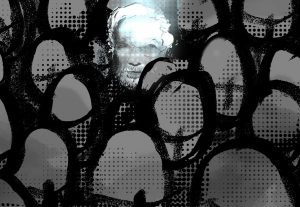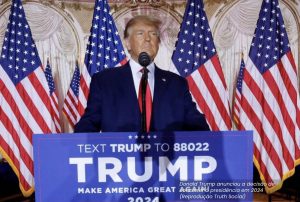London – On the day that incumbent president Luiz Inácio Lula da Silva met with the leaders of the Wikileaks website, which toured Latin America to ask for support for the release of Julian Assange, five broadcasts raised their voices posting content exposed by him. against the USA.
In an open letter published Monday, The Guardian, The New York Times, Le Monde, Der Spiegel and El País protested what they saw as a dangerous precedent for press freedom: the use of the 1917 Espionage Act to prosecute a press. vehicle.
“It’s time for the US government to end its prosecution of Julian Assange for publishing secrets. Publishing is not a crime” | Editors and publishers @Guardian@nytimes @el_pais @derspiegel @lemondefr #cable gate #FreeAssangeNOW https://t.co/gpqoRSQNgz pic.twitter.com/saV5nuPMwk
— WikiLeaks (@wikileaks) 28 November 2022
The text lines up with Assange’s defense, which is based on the risk of condemnation to journalists or their sources who disclose troubling secrets.
The letter cites some dismay at some of Assange’s actions, but reports that the signatories decided to meet to denounce what they saw as a threat to journalism: “Publishing is not a crime,” they say.
After meeting with Wikileaks editor-in-chief Kristinn Hrafnsson and the site’s editor Joseph Farrell, Lula posted a message of support on Twitter.
be together @khrafnssonJoseph Farrell, WikiLeaks editor-in-chief and editor who briefed me on Julian Assange’s health and his struggle for freedom. I asked them to send my solidarity. May Assange be spared an unjustified prison sentence.
????: Claudio Kbene pic.twitter.com/DuSvdEBQQY
— Lula (@LulaOficial) 29 November 2022
Julian Assange remains in custody at Belmarsh Prison in London until his latest attempts, led by his wife, Stella, to prevent his defense from being extradited to the United States are examined.
According to his family, the health of the founder of Wikileaks is declining. He even tested positive for covid-19 in prison two months ago, but has since recovered.
The case has dragged on since 2019, when Julian Assange took refuge in the Ecuadorian Embassy to avoid extradition.
If found guilty, he will face 175 prison terms, the sum of the possible penalties in the 18 cases filed by the US State Department.
This Wednesday (30), the Brazilian Press Association will hold a demonstration in Rio de Janeiro in favor of Assange’s release.
Also read | Private | Follow the Julian Assange case and its importance for the future of press freedom
Full text of Assange’s defense letter to the United States
“Twelve years ago, on November 28, 2010, five international media outlets – The New York Times, The Guardian, Le Monde, El País and Der Spiegel – in collaboration with Wikileaks, published a series of headlines on Worldwide.
The “cable door”, a string of 251,000 secret telegrams from the US State Department, has exposed international corruption, diplomatic scandals and espionage.
In the words of The New York Times, the documents told “the unadorned story of how the government made its biggest decisions, the decisions that cost the country the most lives and money”.
Even now in 2022, journalists and historians continue to publish new revelations using the unique gem that is documents.
For Wikileaks editor Julian Assange, the publication of “Cable-crossing” and several other leaks related to it had the most serious consequences.
On 12 April 2019, Assange was arrested in London on a US search warrant and has now been held for three and a half years in a British maximum security prison, often used for terrorists and members of organized crime groups.
He is at risk of extradition to the US and faces up to 175 years in prison in a maximum security prison in the US.
This group of editors and news outlets, all of whom have worked with Assange, felt the need to publicly criticize his behavior when unedited copies of the cables were released in 2011.
And some of us are concerned about the allegations in the indictment that a confidential database was trying to aid the hacking.
But we have now come together to express our grave concern over the ongoing prosecution of Julian Assange for obtaining and publishing classified material.
The Obama-Biden administration, which was in office at the time of Wikileaks’ publication in 2010, avoided blaming Assange and announced that it would have to blame journalists from major news organizations as well.
Their position valued freedom of the press despite its troubling consequences.
But the position has changed under Donald Trump. The DOJ was based on an old law, the Espionage Act of 1917 (designed during World War I to prosecute potential spies), which was never used to prosecute a publisher or publisher.
This accusation sets a dangerous precedent and threatens to undermine the United States’ First Amendment and press freedom.
Holding governments accountable is part of the fundamental mission of a free press in a democracy.
Obtaining and disclosing confidential information when necessary in the public interest is an essential part of the daily work of journalists. If this business is criminalized, our public discourse and democracies are significantly weakened.
Twelve years after the release of “Cable Gate,” it is time for the US government to end its lawsuit against Julian Assange for publishing secrets.
Publishing is not a crime.”
Also read | Reporters Without Borders wants law to protect source confidentiality if Trump returns to US presidency
source: Noticias
Mark Jones is a world traveler and journalist for News Rebeat. With a curious mind and a love of adventure, Mark brings a unique perspective to the latest global events and provides in-depth and thought-provoking coverage of the world at large.

